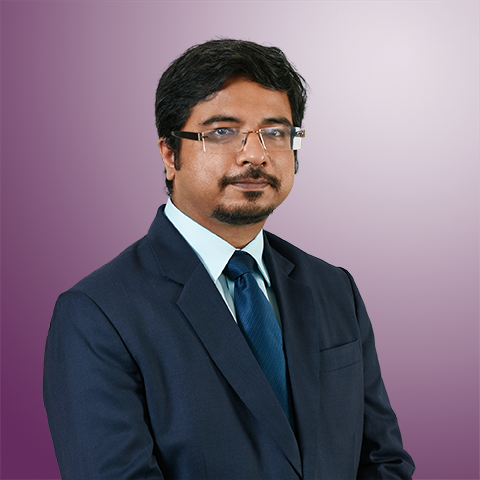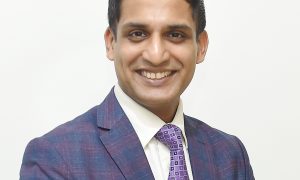This Interview has been published by Pragya Chandni and The SuperLawyer Team

Can you walk us through your journey to becoming a disputes lawyer, particularly focusing on what drew you to this field and how you navigate your career path to reach your current position at Cyril Amarchand Mangaldas?
I was drawn to the law because of my love for debating and for solving puzzles. For the same reason, disputes were a natural choice. Being a first-generation lawyer, I opted to join a law firm because I felt that is where I would have the most opportunities. I was recruited directly from campus by what was then the Mumbai office of Amarchand & Mangaldas & Suresh A. Shroff & Co. (AMSS). After AMSS split in 2015, I continued working with the same set of colleagues at Cyril Amarchand Mangaldas (CAM). I worked hard and tried to approach each assignment with the same amount of intensity. Having the opportunity of working on unique cases has ensured that I have been regularly confronted with new challenges in areas of law that I have not previously encountered. I have been fortunate to have excellent mentors to guide me through my professional journey. This positive experience caused my continuation with AMSS/ CAM for over a decade. Becoming a partner in 2019 brought with it a new set of responsibilities. I believe that the most important of these involves managing a team and being responsible for the professional growth of my team members.
With your extensive experience in handling complex commercial litigation and arbitration cases, often with international aspects, could you share with us a particularly challenging case you’ve worked on? What were the key strategies you employed to navigate through the complexities of that case?
A particularly challenging case I handled involved advising a court-appointed committee of administrators tasked with implementing reforms in a sports body. There were several stakeholders whose interests needed to be considered. Apart from the legal complexities involving multiple proceedings before the Supreme Court and different High Courts, I had to fulfil different roles including those of a traditional disputes lawyer (drafting pleadings, briefing senior advocates, and appearing in court) as well as those of a board-room advisor. There was little progress before the Supreme Court during the initial period. However, when different High Courts started passing orders in related proceedings and these were carried in appeal, the Supreme Court realised the need to expedite hearing of the matter. In this way, the strategy of precipitating matters before various High Courts helped progress the matter in the Supreme Court.
Your work spans across various sectors including sports, corporate governance, construction, infrastructure, media, banking/finance, securities, and energy. How do you approach transitioning between these different sectors when handling disputes? Are there any unique challenges or opportunities presented by each sector?
I try to understand how each sector is organised and how the interests of each stakeholder are accommodated by the laws governing that sector. Applying this approach has helped me to understand the dynamics of the sector and I have found this invaluable when dealing with challenges unique to each sector. I have also been able to apply the learnings from one sector to another when I found similarities between them. The quality of the experience also plays a significant role. When you work at a large law firm, the nature of disputes that you work on are usually intricate and often first-of-their-kind. The experience of handling such complex disputes is significantly more rewarding and provides greater insight into sectoral dynamics.
You’ve represented several large Indian conglomerates, a national sports body, court-appointed committees, and directors. Could you share some insights into how you adapt your approach when working with such diverse clients and stakeholders?
Just like every sector has its own dynamics, each client has its own values and ethos. Often, two clients in the same sector will have different approaches to similar issues because of their organisational DNA. Some clients are primarily concerned with mitigating the potential financial consequences of a dispute whereas others are more concerned with retaining the trust of their customers/ suppliers and protecting their reputation even if that entails financial consequences. Working with such diverse clients and stakeholders requires a flexible approach that is in sync with the values and ethos of the client in question. I try to discern client priorities and, as far as possible, provide solutions that I believe will fit their value system.
Recently, you completed your LL.M. in International Commercial & Economic Law from the School of Oriental & African Studies, University of London. How has this additional qualification influenced your approach to handling disputes, particularly those with an international dimension?
The experience of being in a classroom after over a decade of working in a law firm was enriching. Several of my professors were active disputes practitioners and came from different jurisdictions in Africa, continental Europe, the Middle East and the USA. The varied ways in which they dealt with issues that I faced during my work in India was extremely helpful in understanding the approach in their respective home jurisdictions. This insight is invaluable when handling disputes with an international dimension, especially in advising international clients and collaborating with international law firms. The course also helped me build upon my existing work experience in commercial dispute resolution and deepen my understanding of evolving areas like business and human rights.
As a partner at Cyril Amarchand Mangaldas, you’ve not only handled legal aspects but also been involved in business development activities and managed teams. Could you share some strategies you’ve found effective in maintaining and strengthening relationships with key clients, as well as in managing and mentoring your team?
I have found that understanding the commercial and other considerations that drive client behaviour is useful for empathizing with the client’s situation. For corporate clients, this helps me understand the pressures that the instructing legal officer is likely to be facing from the company’s business teams. This understanding is critical to ensuring delivery of quality advice in a timely manner. It is natural for clients to want to avoid disputes but I try to ensure that they remember me as the person who helped them on their last one.
Empathy has also been critical to managing and mentoring team members. For this purpose, I have drawn upon my own early experiences as a junior associate and listened patiently when my team members express themselves. One thing I have learnt over the years is to recognise that each team member is different. Staffing them on assignments that play to each team member’s strengths while giving them time to become more well-rounded professionals is a strategy that I have frequently employed. In my interactions with team members, I try to be as forthright as possible whilst ensuring that they remain motivated to constantly become better versions of themselves.
Looking back at your career journey, what advice would you give to law students or young professionals aspiring to build a successful career in disputes law, especially in the context of the Indian legal landscape?
Based on my personal experience, I believe that there is no substitute for hard work. I have tried to treat every assignment as an opportunity to learn something new and not merely as a task to be completed. When appropriate, I did not shy away from making suggestions and providing inputs that went beyond what was asked of me. Having a positive attitude towards learning has helped me significantly. I have found that there is something to be learnt from each and every person, no matter how young or old. This has worked out positively for me and I believe that it will do so for any law student or young professional as well.























